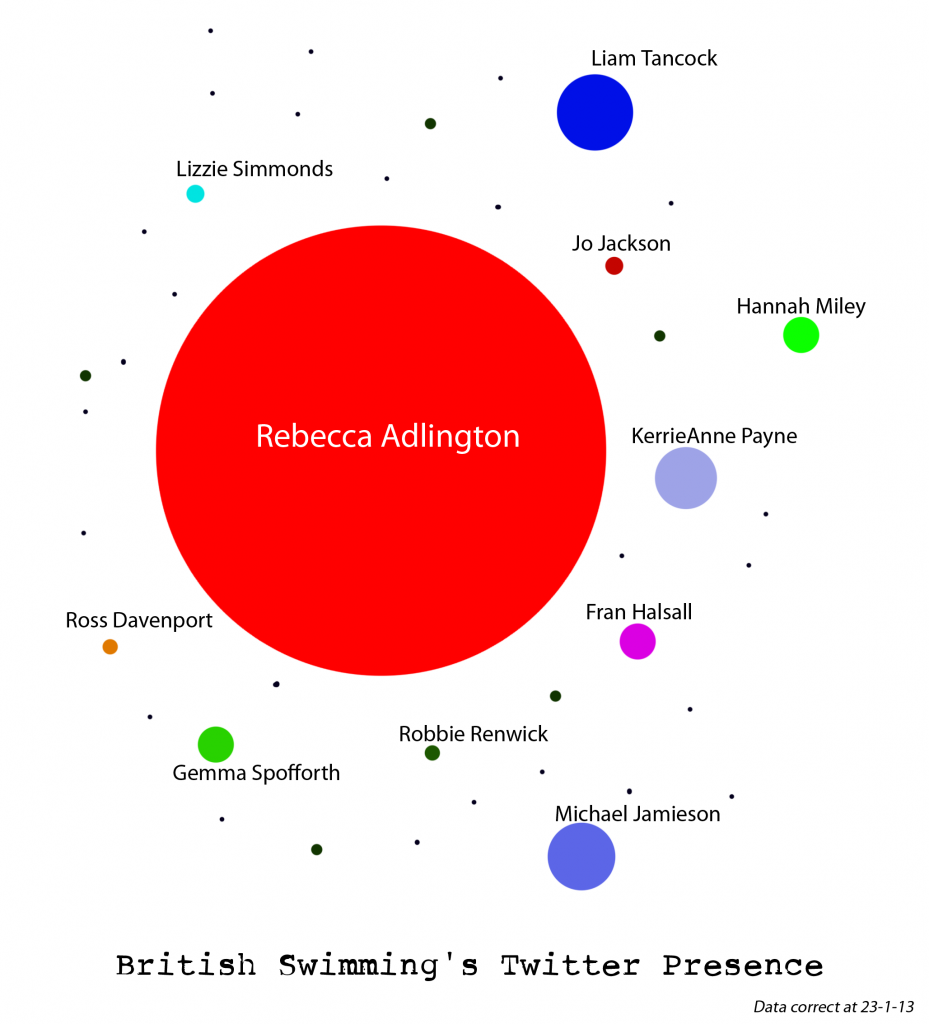Swimming Australia moved last week to ban the use of social media, notably Facebook and Twitter, by its swimmers during major meets, in a move motivated by its review into a under par performance at the London Games. The findings of that review indicated excessive social media use, as well as a lack of team unity, as key contributory factors to that performance.
A key example cited in Australia is Emily Seebohm, who qualified fastest for the 100m backstroke final but finished with a silver medal, and is reported to have become overconfident after receiving numerous compliments on her semi final swim via Twitter.
Critics of a ban such as this suggest that it’s merely window dressing and that greater problems lie in the pool or on deck. There’s no doubt though, that Twitter in particular has been embraced by British swimmers, much as it has been by wider society. And as those who follow Britain’s swimmers will know, it has become a significant source of exposure for individual’s sponsors, making it a potentially important contributor to swimmer’s sponsorship income.
Furthermore, swimming fans undoubtedly enjoy hearing about the ins and outs of a major meet, as the number of followers that Britain’s Olympic team amassed demonstrates. Even those who undertook self-imposed twitter bans during the Games themselves such as Hannah Miley, enjoy huge followings.
By way of illustration, the British Olympic team from 2012 averages over 15,000 followers each with ten swimmers boasting followings in excess of 10,000. Even allowing for the significant skew that Becky Adlington’s 316,000 followers brings to the calculation, that still eaves an average of 8000 followers per swimmer. Even those who only joined twitter late in the day before the games such as Michael Rock, who has only 10 tweets to his name, have garnered significant followings; at the time of writing Rock had over 2100 followers.

But the impact of this twitter usage on performance is not yet definitively proven, despite Seebohm’s example. Britain’s Olympic performance debrief did however feel the issue was serious enough to consider as a separate element in its review of the London showing and while it concluded that there was no strong evidence to suggest that social media had affected the team’s performance, there were several areas that the review was concerned about.
Quite apart of the potential damaging effect that twitter trolling may have on an athlete, the review was particularly concerned that use of social media by swimmers created “an image of the sport to the outside world that mediocrity is accepted within the swimming team”. This may have had potential knock on effects to other team members who may “take on the psyche that mediocre performances are acceptable by following the tone set by their peers, or that the performance outcomes are not the sole focus of the meet”
While stopping short of recommending an outright ban, the review concludes that better and compulsory training in this area be given to all team members and that appropriate protocols be developed. Whether these protocols might include a ban remains to be seen, but Australia has set a precedent in this regard which may well be followed in Britain. We could be hearing a lot less from our swimmers in Barcelona.
